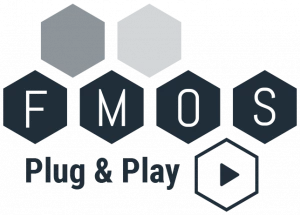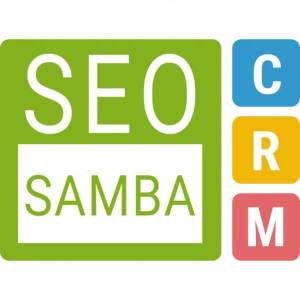CRM for industries
CRM software can provide numerous benefits to businesses in industries by enabling them to manage customer relationships more effectively, streamline processes, and drive revenue growth.

Improved customer satisfaction
CRM software enables businesses to manage customer interactions more effectively, from lead generation to customer service. By keeping track of customer preferences, history, and feedback, businesses can provide more personalized and timely support, which can improve customer satisfaction and loyalty.
Increased productivity
CRM software automates many time-consuming and repetitive tasks, such as data entry, lead routing, and follow-up emails. This frees up staff to focus on higher-value activities, such as building relationships with customers and closing deals.
Better data insights
CRM software provides a central repository for all customer data, which can be analyzed to gain insights into customer behavior, preferences, and trends. This data can be used to inform marketing strategies, product development, and customer service initiatives.
Streamlined workflows
CRM software enables businesses to automate and streamline many business processes, from sales and marketing to customer service and support. This can reduce errors, increase efficiency, and improve collaboration across teams.
Higher revenue
By improving customer satisfaction, productivity, and data insights, CRM software can help businesses increase their revenue. This can be achieved through higher customer retention rates, more effective marketing campaigns, better lead management, and more successful sales efforts.
Better customer segmentation
CRM software enables businesses to segment customers based on various criteria such as demographics, purchase history, and engagement level. This allows businesses to tailor their marketing and sales efforts to specific groups of customers, resulting in more effective campaigns and better conversion rates.

Customer Relationship Management (CRM)
Software can help businesses in different industries improve their customer relationships and grow revenue by enabling to manage leads more effectively, automate sales processes, create targeted marketing campaigns, provide better customer service, and gain valuable data insights.
-
Lead management:
CRM software can help businesses manage their leads more effectively by tracking interactions, recording contact information, and automating follow-up tasks. This can help businesses to convert more leads into paying customers.
-
Sales automation:
CRM software can automate many sales processes, such as creating and sending proposals, tracking deals, and managing contracts. This can help businesses to close deals more quickly and efficiently.
-
Customer segmentation:
CRM software enables businesses to segment customers based on various criteria, such as demographics, purchase history, and engagement level. This allows businesses to tailor their marketing and sales efforts to specific groups of customers, resulting in more effective campaigns and better conversion rates.
-
Marketing campaigns:
CRM software can help businesses create more targeted and effective marketing campaigns by providing insights into customer behavior and preferences. Businesses can use this data to create personalized content, and to reach out to customers at the right time and through the right channels.
-
Customer service:
CRM software can help businesses provide better customer service by giving agents access to customer data and interaction history. This enables agents to provide more personalized and efficient support, resulting in higher customer satisfaction and loyalty.
-
Data analytics:
CRM software provides businesses with a central repository for all customer data, which can be analyzed to gain insights into customer behavior, preferences, and trends. This data can be used to inform marketing strategies, product development, and customer service initiatives.
10 key features of CRM for Consulting
Contact management:
CRM software enables consultants to manage contact information in a centralized database. This includes recording contact details, interactions, and other relevant information about clients and prospects.
Lead management:
CRM software helps consultants manage leads more effectively by tracking interactions, recording contact information, and automating follow-up tasks. This can help to convert more leads into paying clients.
Project management:
CRM software solution offers project management features, which can help manage projects from start to finish. This includes tracking tasks, deadlines, and milestones, as well as managing resources and budgets.
Time and expense tracking:
Consulting engagements involve billing clients for time and expenses. CRM software can help track time and expenses, and generate accurate and detailed invoices.
Resource management:
Many consulting engagements require a team of consultants with different skills and experience levels. CRM software helps manage resources, including assigning team members to projects, tracking their availability, and managing schedules.
Document management:
Consultin industry demand to share and collaborate on documents with clients and team members. CRM software can help manage documents, including creating, storing, and sharing them securely.
Reporting and analytics:
CRM software provides consultants with a centralized database for customer and project data, which can be analyzed to gain insights into customer behavior, preferences, and project performance. This data can be used to inform future engagements and improve consulting services.
Business development:
CRM software can help consultants manage their business development activities, including tracking leads, managing proposals, and analyzing sales performance. This can help consultants to identify new opportunities and win more business.
Mobile access:
CRM software solution offer mobile apps that allow consultants to access customer information, manage projects, and respond to inquiries from anywhere.
Customization:
CRM software can be customized to meet the specific needs of consulting firms, including custom fields, workflows, and reporting. This can help to streamline workflows and improve overall efficiency and productivity.
Customer Relationship Management is a valuable tool for consulting to manage and maintain relationships with clients.
Analyze customer behavior, track which services are used by your clients and which are not. How often your customers need your help. Identify opportunities for upselling and cross-selling to tailor services to meet your clients needs.

Provide better customer service by having quick and easy acess to client information. Build stronger relationshios with customers and improve overall satisfaction with SeoSamba CRM for Consulting.




